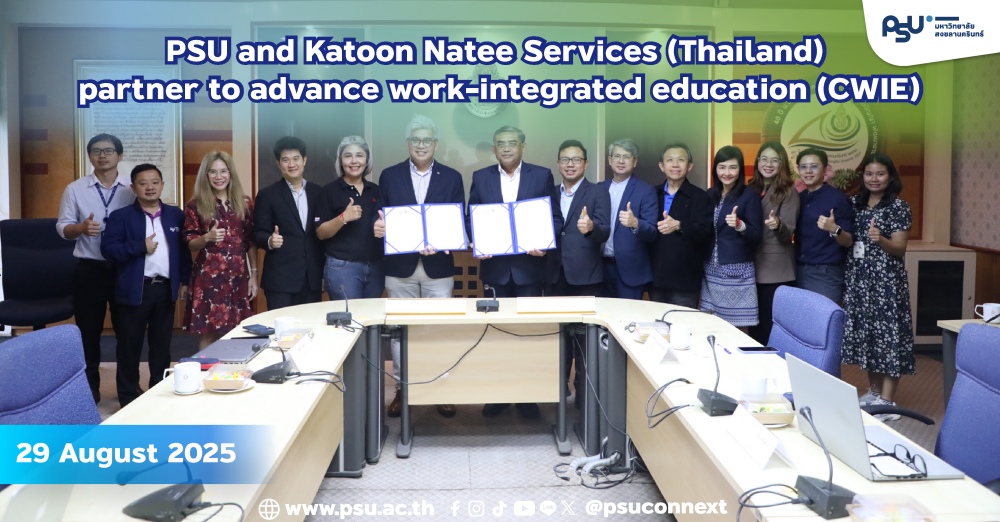
Prince of Songkla University, through the Office of Education and Learning Innovation, signed a Memorandum of Understanding with Katoon Nathi Services (Thailand) Co., Ltd. on Cooperative and Work Integrated Education (CWIE). The initiative aims to create and expand cooperation in a new model of education, providing faculty and students with real-world work experience in high-standard organizations that understand the educational process.
The signing ceremony was presided over by Asst. Prof. Dr. Niwat Keawpradub, President of PSU, who welcomed Assoc. Prof. Dr. Surapong Chatipun, Deputy Director of Educational Innovation, Office of Education and Innovative Learning Academy, and Mr. Neramit Panpornmin, Chief Operating Officer of Katoon Nathi Services (Thailand), who expressed his appreciation of the collaboration. The event took place on August 29, 2025, at Meeting Room 1, President’s Office, Hat Yai Campus.



This partnership seeks to enhance the quality of higher education students by jointly developing curricula and teaching management in areas of shared expertise. The goal is to produce graduates with competencies that meet prescribed learning outcomes. Students will have the opportunity to gain real work experience during their studies, bridging classroom knowledge with actual workplace practices. Under expert guidance, students will also learn organizational culture and operational systems that cannot be fully acquired in traditional classrooms. This ensures their personal development and equips them with skills aligned with labor market needs, enabling them to become job-ready upon graduation.



Beyond student development, the agreement promotes academic outputs in various forms, serving as a mechanism to strengthen both the economy and society. It emphasizes academic services to the community, sustainable community management models, capacity building for vulnerable groups based on academic foundations, and knowledge exchange through resource persons. The partnership also covers study visits and activities designed to address community needs through research, education, and social innovation.
Ultimately, this collaboration aims to develop new models for enhancing national workforce competencies, enabling individuals to adapt swiftly to social and economic changes, increasing competitiveness across all age groups, and strengthening the country’s development. It will also foster knowledge exchange, social communication, and academic collaboration, all arising from the joint efforts of both parties.



